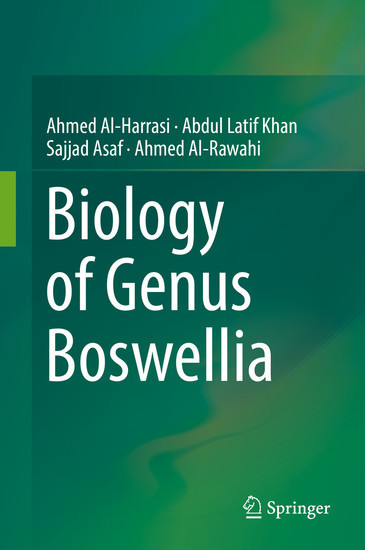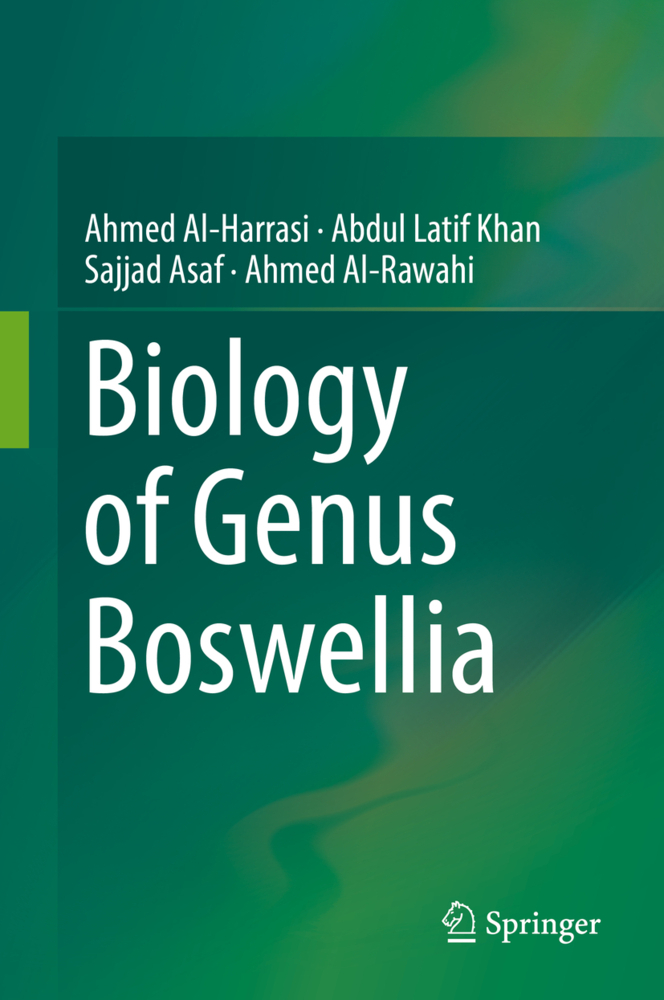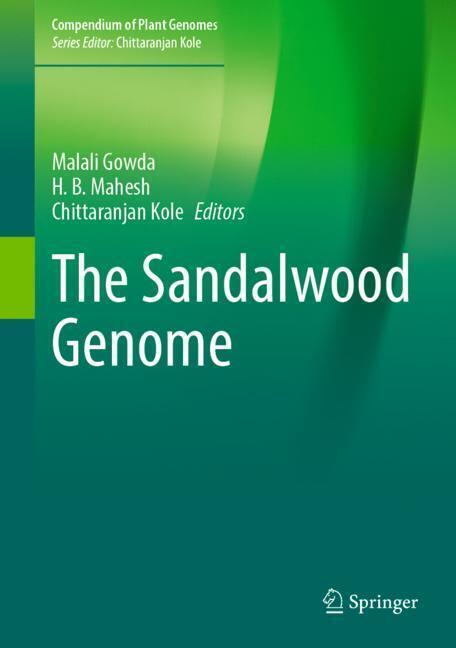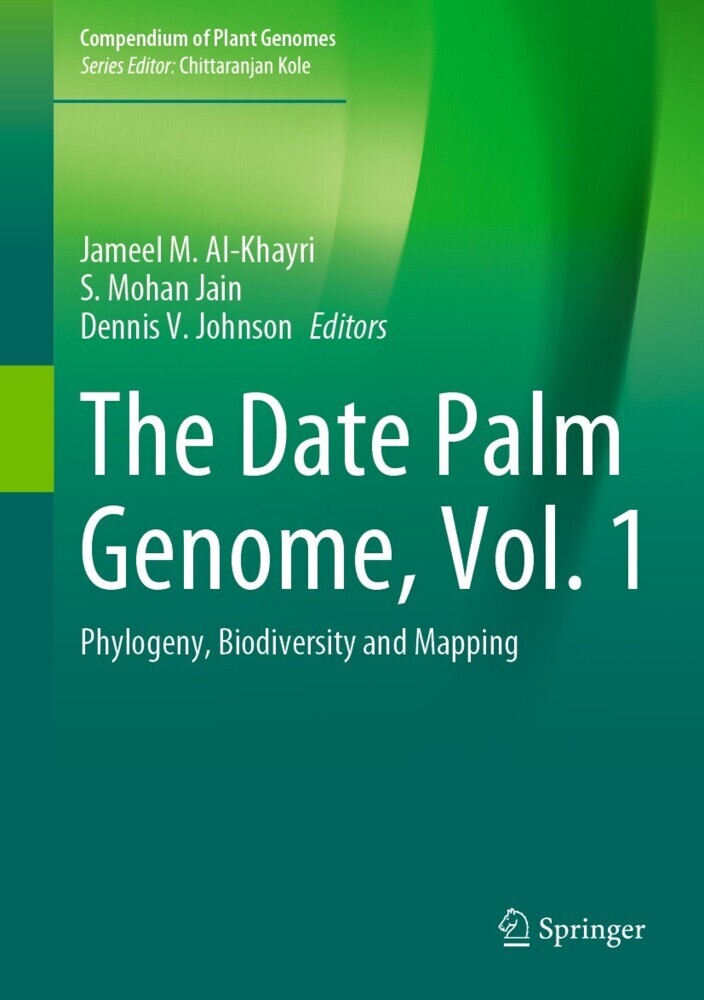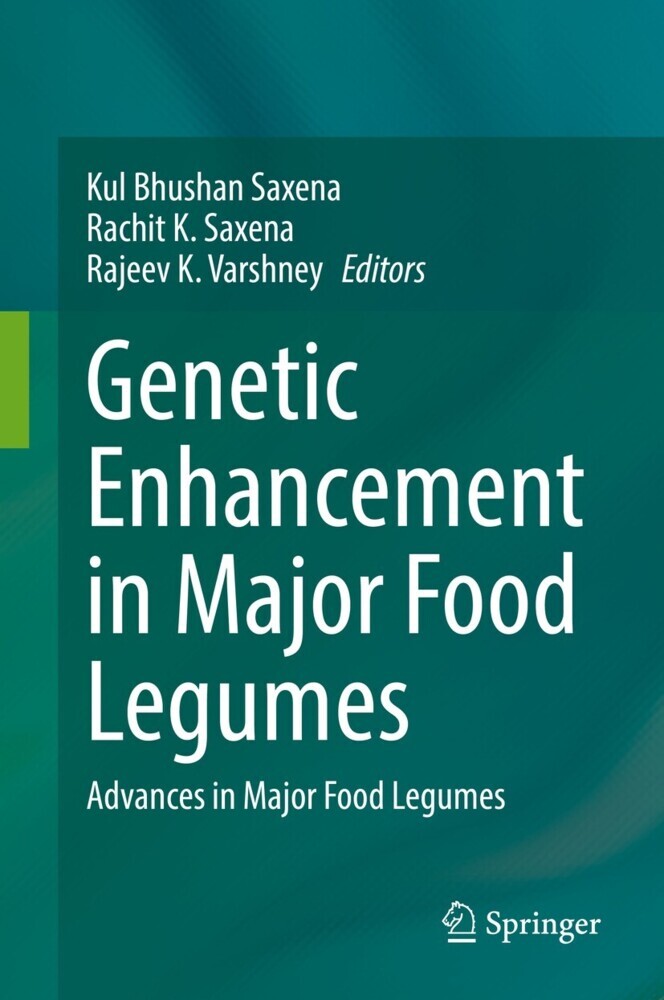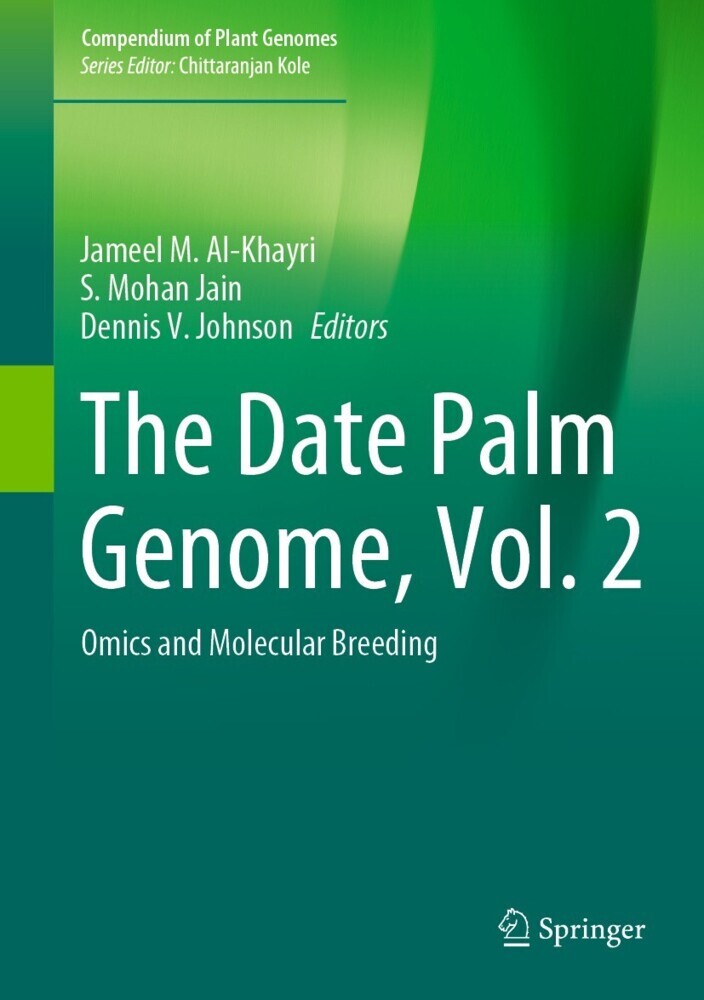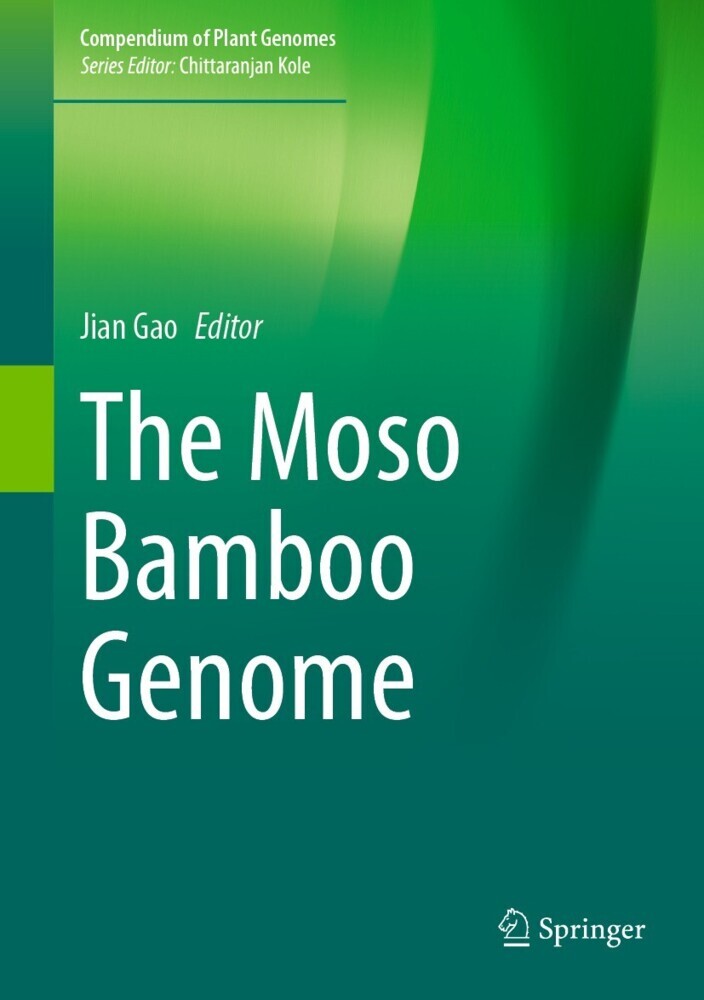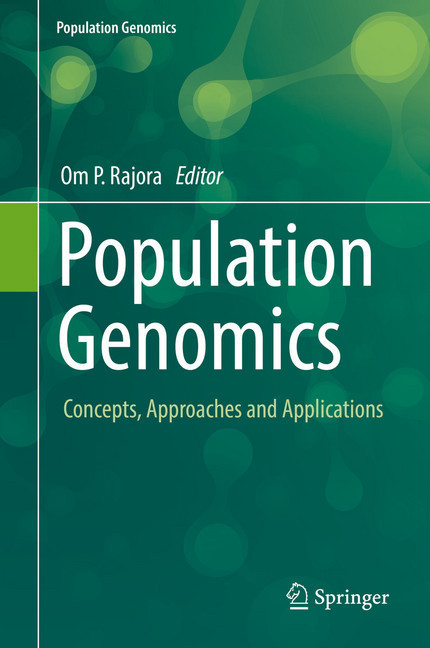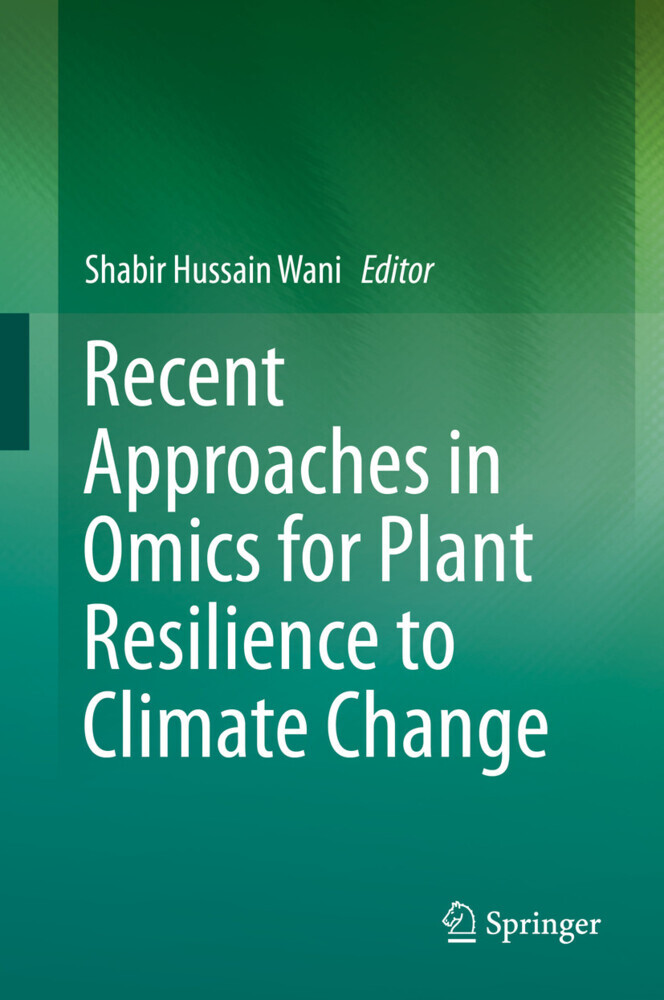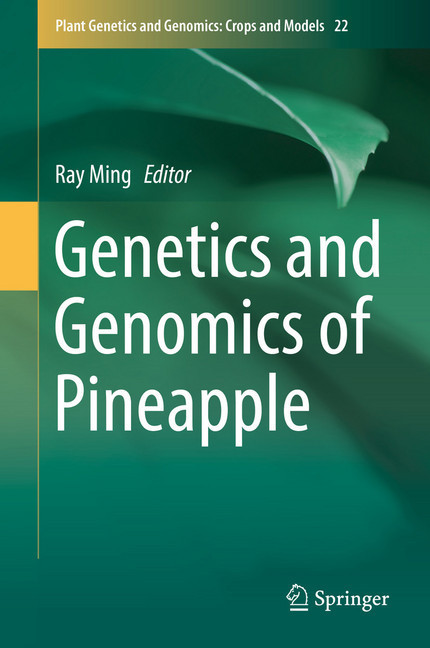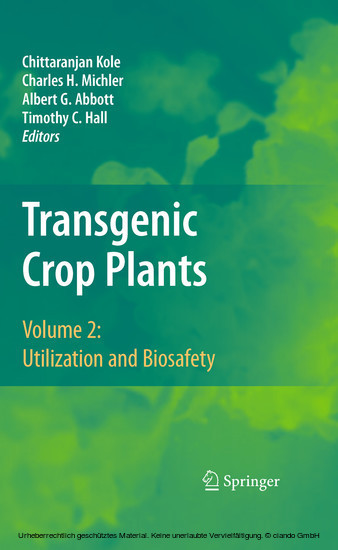Biology of Genus Boswellia
Biology of Genus Boswellia
This book provides insight into the biology and genomics of the genus Boswellia (family Burseraceae), a natural resource used for the production of frankincense, an oleo-gum resin. The Boswellia species are ecologically, medicinally, commercially and culturally important. Significantly contributing to the paucity of comprehensive literature on this genus, this volume provides a detailed discussion on the genomics, physiology and ecology of Boswellia. The chapters cover a wide range of topics, including taxonomy, distribution, genetic diversity and microbiology. The production process of frankincense and its impact on the species are presented as well. In light of the recent decline of various Boswellia populations, species propagation and conservation are discussed. Plant scholars, ecologists and conservation biologists will find this book to be an important and informative reference.
Prof. Ahmed Al-Harrasi received his BSc in Chemistry from Sultan Qaboos University (Oman) in 1997 his MSc in Chemistry from the Free University of Berlin in 2002 and his PhD in Organic Chemistry in 2005 as a DAAD-fellow under the supervision of Prof. Hans-Ulrich Reissig. His PhD work was on New Transformations of Enantiopure 1,2-oxazines. He received the Fulbright Award in 2008 for postdoctoral research in chemistry, for which he joined Prof. Tadhg Begely group at Cornell University where he worked on synthesis of isotopically-labeled thiamin pyrophosphate. After a postdoctoral research stay at Cornell University in 2009, he started his independent research at the University of Nizwa, Oman, where he founded the chair of Oman's Medicinal Plants and Marine Natural Products, merging chemistry and biology research. He is currently a Professor of Organic Chemistry and the Vice Chancellor for Graduate Studies, Research and External Relations at the University of Nizwa. He is the founder and chairperson of the Chair of Oman's Medicinal Plants and Marine Natural Products. The budget of his interdisciplinary-funded projects exceeds seven millions USD. He was a chair and invited speaker in many international conferences. He is a referee for more than 15 international chemistry and biotechnology Journals. He has authored and co-authored over 300 scientific papers, one book and 6 book chapters. He taught many chemistry courses both at MSc and BSc levels.
Dr. Khan received his B.Sc. and M.Sc. degree in distinction from University of Peshawar, Pakistan. Later, he joined the Department of Chemistry, Kohat University of Science & Technology, Kohat, Pakistan to complete his M.Phil. in Phytochemistry and JASSO Research Fellowship by the Gene Research Center University of Tsukuba, Japan. Dr. Khan was selected for an honorary scholarship by Kyungpook National University, South Korea for his PhD degree in Plant Physiology. After his PhD, he remained as a Post-Doctorate Fellow at the School of Applied Biosciences. He worked as Research Professor at the Institute of Agriculture Science & Technology, Kyungpook National University, South Korea. He has published more than 150 research articles as a principal and co-author in journals of international repute. His research activities focus on plant molecular physiology during environmental and microbial antagonists and plant genome sequencing. His current projects include draft and chloroplast genomes of date palm, Boswellia sacra, pomegranate and various endemic medicinal plants of Oman. He is currently working as Associate Professor at Natural and Medical Sciences Research Center, University of Nizwa, Nizwa Oman.
Dr. Sajjad Asaf completed his Master in Botany (MPhil) from Kohat University of Science and Technology (KUST) Kohat, Pakistan in 2012. He received the KNU Honour Scholarship for PhD studies in South Korea and completed his Ph.D. (2017) at the Laboratory of Crop Physiology at Kyungpook National University, South Korea. His Ph.D. research work was on the physiology and genomics of plant growth promoting e
Prof. Ahmed Al-Harrasi received his BSc in Chemistry from Sultan Qaboos University (Oman) in 1997 his MSc in Chemistry from the Free University of Berlin in 2002 and his PhD in Organic Chemistry in 2005 as a DAAD-fellow under the supervision of Prof. Hans-Ulrich Reissig. His PhD work was on New Transformations of Enantiopure 1,2-oxazines. He received the Fulbright Award in 2008 for postdoctoral research in chemistry, for which he joined Prof. Tadhg Begely group at Cornell University where he worked on synthesis of isotopically-labeled thiamin pyrophosphate. After a postdoctoral research stay at Cornell University in 2009, he started his independent research at the University of Nizwa, Oman, where he founded the chair of Oman's Medicinal Plants and Marine Natural Products, merging chemistry and biology research. He is currently a Professor of Organic Chemistry and the Vice Chancellor for Graduate Studies, Research and External Relations at the University of Nizwa. He is the founder and chairperson of the Chair of Oman's Medicinal Plants and Marine Natural Products. The budget of his interdisciplinary-funded projects exceeds seven millions USD. He was a chair and invited speaker in many international conferences. He is a referee for more than 15 international chemistry and biotechnology Journals. He has authored and co-authored over 300 scientific papers, one book and 6 book chapters. He taught many chemistry courses both at MSc and BSc levels.
Dr. Khan received his B.Sc. and M.Sc. degree in distinction from University of Peshawar, Pakistan. Later, he joined the Department of Chemistry, Kohat University of Science & Technology, Kohat, Pakistan to complete his M.Phil. in Phytochemistry and JASSO Research Fellowship by the Gene Research Center University of Tsukuba, Japan. Dr. Khan was selected for an honorary scholarship by Kyungpook National University, South Korea for his PhD degree in Plant Physiology. After his PhD, he remained as a Post-Doctorate Fellow at the School of Applied Biosciences. He worked as Research Professor at the Institute of Agriculture Science & Technology, Kyungpook National University, South Korea. He has published more than 150 research articles as a principal and co-author in journals of international repute. His research activities focus on plant molecular physiology during environmental and microbial antagonists and plant genome sequencing. His current projects include draft and chloroplast genomes of date palm, Boswellia sacra, pomegranate and various endemic medicinal plants of Oman. He is currently working as Associate Professor at Natural and Medical Sciences Research Center, University of Nizwa, Nizwa Oman.
Dr. Sajjad Asaf completed his Master in Botany (MPhil) from Kohat University of Science and Technology (KUST) Kohat, Pakistan in 2012. He received the KNU Honour Scholarship for PhD studies in South Korea and completed his Ph.D. (2017) at the Laboratory of Crop Physiology at Kyungpook National University, South Korea. His Ph.D. research work was on the physiology and genomics of plant growth promoting e
Al-Harrasi, Ahmed
Khan, Abdul Latif
Asaf, Sajjad
| ISBN | 9783030167257 |
|---|---|
| Artikelnummer | 9783030167257 |
| Medientyp | E-Book - PDF |
| Copyrightjahr | 2019 |
| Verlag | Springer-Verlag |
| Umfang | 173 Seiten |
| Sprache | Englisch |
| Kopierschutz | Digitales Wasserzeichen |

